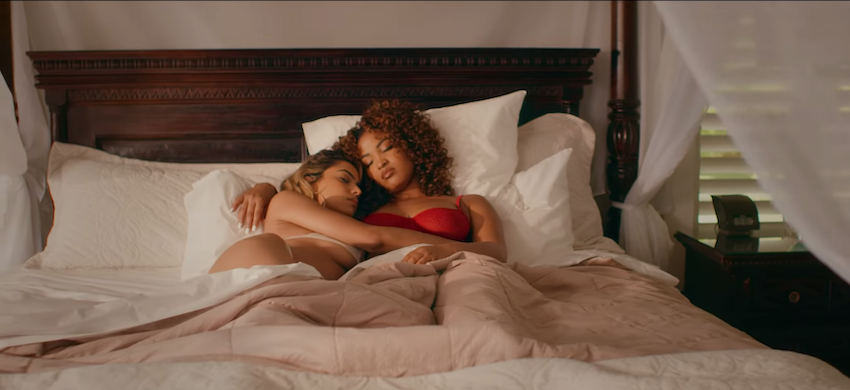Over the years, a number of dancehall artists have attracted negative attention for homophobic lyrics. Jamaica Pride gathers a community who love the genre’s celebratory aspects.
When rising dancehall star Shenseea dropped the visuals for her summerbop Blessed earlier this year, it had all the ingredients of a classic music video set in Jamaica: the shot of a pristine beach, the man chopping a coconut, the rasta with a fat spliff chanting.
But around 13 seconds in, the camera focuses on Shenseea undressed in bed with another woman. This was radical for the Jamaican dancehall scene, and you could hope that it indicates a wider cultural shift.
This August, Jamaican Pride took place over a six-day schedule of events including a cooler fete, a sports day, and a breakfast party – with growing support from a place where it might be least expected – from dancehall artists (although it notably only featured female performers).
It took a lot of work and courage for LGBTQ fans of dancehall to be able to celebrate like this. In 2006, Time Magazine named Jamaica “the most homophobic place on Earth.” As a genre, dancehall has produced many murderously homophobic lyrics. The most notorious song coming, of course, from Buju Banton, who gained international notoriety with his hit Boom Bye Bye, written in 1988 and released four years later.

